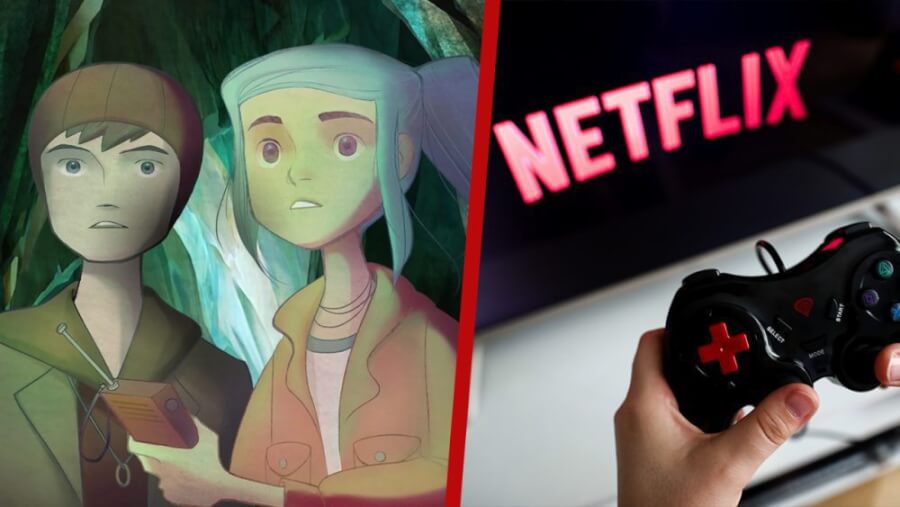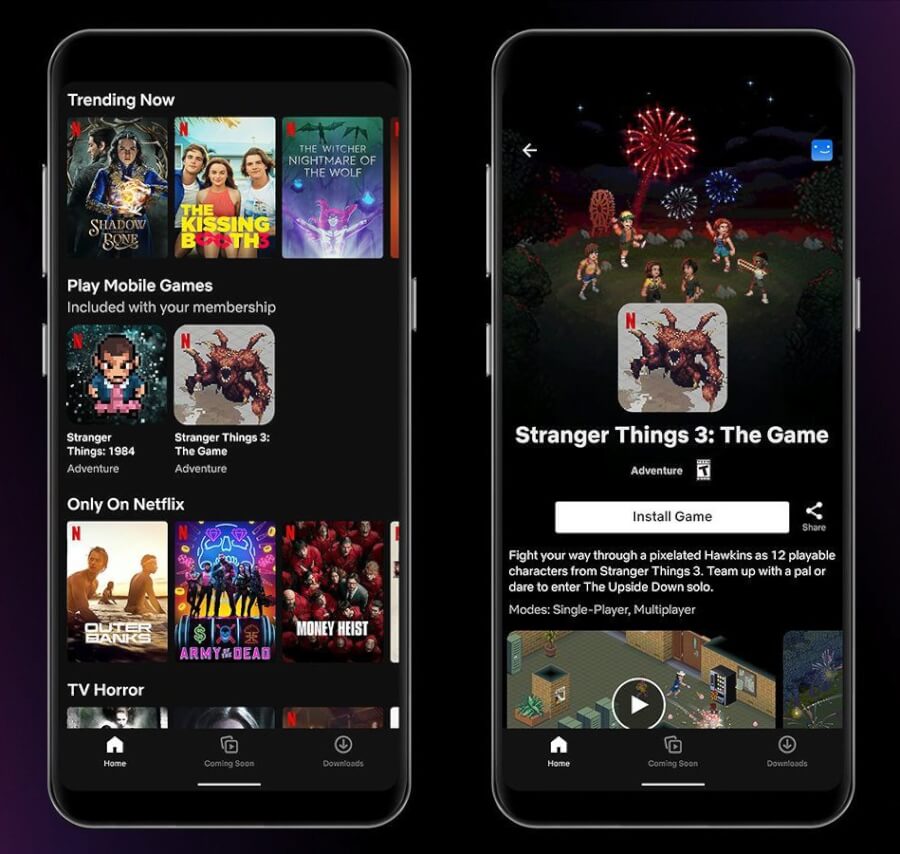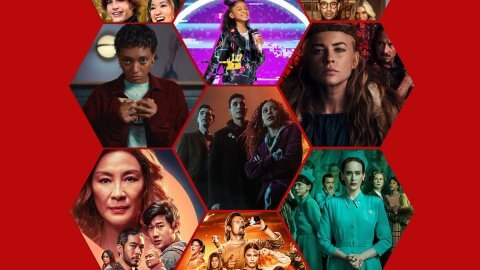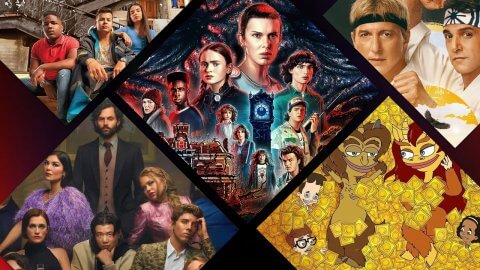
Pictures: Oxenfree & Getty Images
On September 28, Netflix announced their first gaming studio acquisition: Night School Studio, developers of Oxenfree and Afterparty. This purchase signals the start of a new era for Netflix, more so than announcing that video games being included in the price of a subscription to Netflix. A monetary investment shows that the streamer is taking their seemingly sudden interest in video games seriously. But why video games? To understand that, you have to understand how Netflix views competition.
While the obvious competition for Netflix is in other streaming services such as Disney+ and HBOMax, more recently the company has mentioned competition over screen and entertainment time. In the April 2021 letter to shareholders, Netflix stated, “We compete with many activities for consumers’ entertainment time, ranging from watching linear TV, video gaming, and viewing user-generated content. Because of this, the line of thinking from the streaming giant likely is that diversifying what content is available on apps and Netflix.com gives users an incentive to keep their attention firmly on Netflix.
To begin this new venture into gaming, Netflix has tapped Mike Verdu, most recently the VP of Augmented Reality and Virtual Reality Content at Facebook, as their VP of Game Development on July 14. Looking through Verdu’s job history, it might appear Netflix’s early gaming phase will center around mobile-style games. While Verdu got his start in the gaming industry back in 1990 as the co-founder of Legend Entertainment – makers of the Spellcasting series, Mission Critical, and more – in 2009 he moved to Zynga during the Facebook game craze that saw Farmville and Mafia Wars permeate the culture. Eventually, he spun out into a new venture in TapZen, which focused on mobile strategy games. Verdu then moved to EA Mobile, overseeing their mobile game portfolio until he moved to Facebook in May 2019.
On the same day as the hiring of Mike Verdu, Netflix unveiled an initiative to offer video games through the Netflix mobile apps. On August 26, Netflix announced that testing would begin immediately on Android phones in Poland. The reason for Android phones only is that Apple requires certification for any game to be listed on their digital storefront. While the cost to do so isn’t exorbitant, Netflix may simply wait to see how Xbox and Apple resolve their dispute over Xbox Cloud Gaming being used through the Xbox app on IOS before moving forward with IOS testing of their own service.

Netflix Gaming in App Demo
The initial offering of games in the Polish test included Stranger Things: 1984, a 16-bit action game taking place between seasons 1 and 2 of the series, and Stranger Things 3, a 16-bit beat ‘em up that retells the events of the third season of the series. The games are available to subscribers via download through the Google Play store after entering their Netflix login credentials(Interestingly enough, these games were delisted for sale from all other platforms on the same day.) As of September 28, testing has expanded to Italy and Spain with three more games – Card Blast, Teeter Up, and Shooting Hoops – added to the offerings, signaling that other mobile games may join the service outside of just Netflix licenses.
Potential future Netflix licenses joining the in-app line-up in the short-term are The Dark Crystal: Age of Resistance Tactics, a turn-based tactical role-playing game developed by Texas developer Bonus XP Inc (who also developed both Stranger Things games), and Kate: Collateral Damage, a rogue-like action game based on the Netflix Original movie Kate from Brazilian developer Ludic Games. Then there are the games made by recent acquisition Night School Studio. Oxenfree and Afterparty, graphic adventure games, were self-published by Night School, however their most recent adventure game, Next Stop Nowhere, is an Apple Arcade exclusive game and would likely need an out to move to the Netflix app.
As Netflix looks to fill out its first-party (fully-owned) developer pool through acquisition, Bonus XP Inc. makes the most sense as they’ve now developed three licensed games for Netflix. However, Bonus XP’s website states that the company is developing a “next-gen AAA original IP PC/Console game.”
This type of game doesn’t seem to line up with what Netflix is offering, so Bonus XP might be off the table as of now. The only other “obvious” choice would be Ludic Studio, which is developing a Netflix license as well. Even if Netflix were to acquire both studios, a group of three may not be enough for its plans so other purchases would come from outside parties whom they’ve worked with before. It’s also possible that Netflix continues to license out IP to developers to find new talent or simply work with developers of their choosing while taking on none of the overhead cost of employing a studio.
And that’s all without mentioning the Bridgerton video game that was a part of Shonda Rhimes’ new deal.
In other words, Netflix’s gaming future remains unclear, though its strategy is coming into focus. The lingering question is “What kind of investment will we see from the company as time passes?” Is this just a fad to find new ways to be relevant or will gaming be the next pillar of Netflix? Only time will tell.




